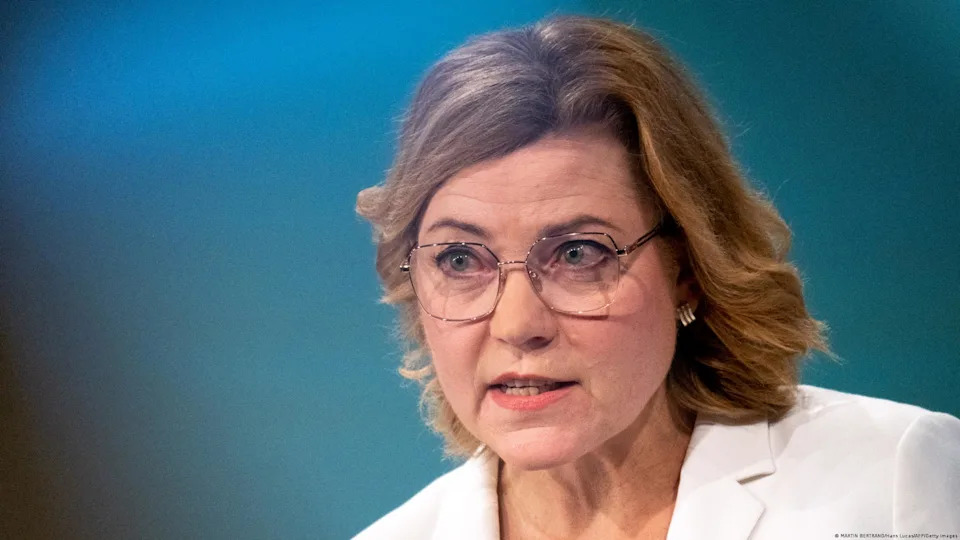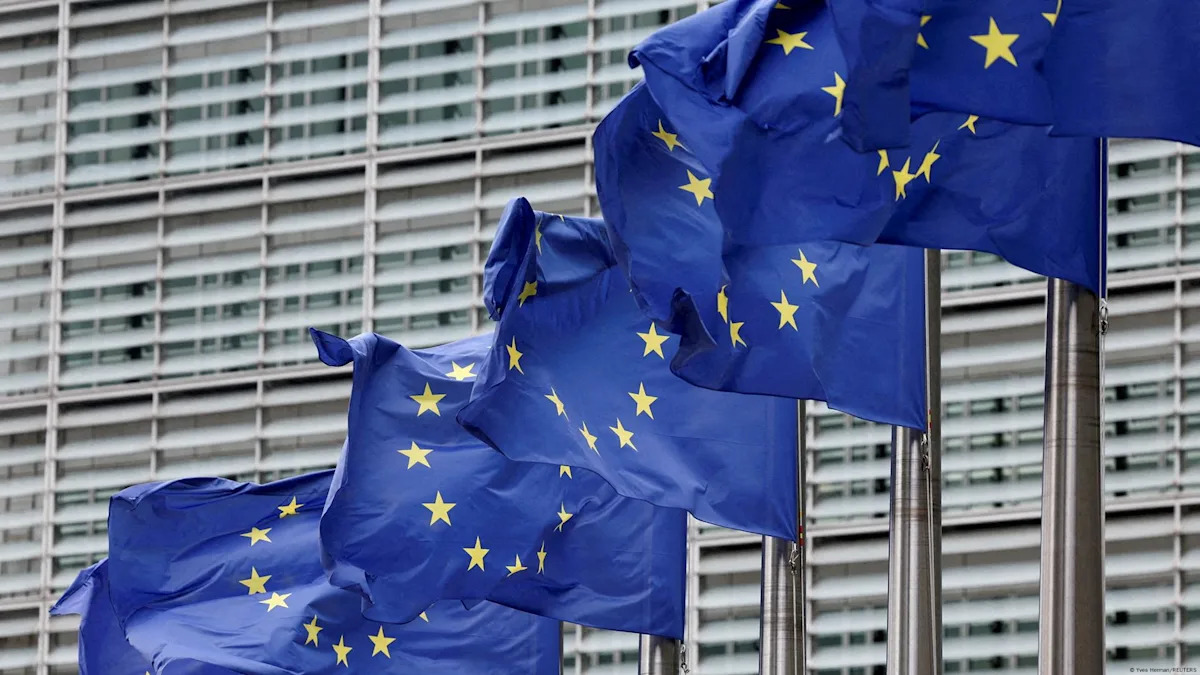The EU wants to tackle foreign interference and stem the flow of disinformation spread online — but experts say the list of largely-voluntary measures unveiled on Wednesday mark only a small step toward the goal.
The European Commission’s new policy plans, dubbed a “democracy shield,” include setting up a new EU center for “democratic resilience” and rolling out funding for independent fact-checkers in all languages spoken across the bloc.
“Disinformation, algorithmic manipulation, financial pressure on media and AI tools now threaten our democratic way of being,” European Commissioner Michael McGrath told reporters on Wednesday.
“Authoritarian regimes are using hybrid tactics, attacking infrastructure, exploiting migration, manipulating information, deploying criminal networks and interfering in our electoral processes.”
Standing by his side, the EU’s digital chief Henna Virukkunen was less vague in her attribution, explicitly accusing Russia of targeting the bloc with “information manipulation and interference.”

The EU’s tech chief Henna Virkunnen said the bloc wants to ensure online platforms “are not misused or manipulated during electoral processes.”MARTIN BERTRAND/Hans Lucas/AFP/Getty Images
What is the EU’s ‘democracy shield?’
The European Commission’s so-called democracy shield largely relies on beefing up existing measures or improving coordination.
EU officials want to work with tech companies on a new “incidents and crisis” protocol to make sure EU governments can act more swiftly if they spot a mass disinformation campaign.
The Commission also vowed to “reinforce” funding for local and independent media and “assess” new ways to “modernize advertising rules to foster the sustainability of EU media.”
But top billing was given to the bloc’s new counter-disinformation hub, which an EU official said would likely be up and running next week. McGrath said the new center should help EU states work together to “pre-empt threats” and “fine-tune” responses.
Future members also welcome
Aspiring EU members such as Ukraine, Montenegro or Albania will also be invited to join the club.
“The reality is that as they get closer to EU membership, the intensity of the threat that they face in terms of foreign interference is only going to grow,” McGrath said.
EU candidate and former Soviet state Moldova faced widespread meddling attempts around crucial elections this year, including schemes uncovered by journalists in which citizens were offered cash payments from Russia-based banks to post anti-government content online. Moscow denied involvement in meddling.

The EU says it has debunked around 20,000 cases of online disinformationYui Mok/dpa/picture alliance
Does the plan have teeth?
But even this flagship new center is only a voluntary measure, meaning national EU governments won’t be obliged to take part.
Policy analyst Luise Quaritsch says that’s because the bloc’s executive is being careful not to tread on capitals’ toes.
“Member states don’t want the European Commission necessarily to be too active in the area of what they perceive as national competence and a matter of sovereignty,” Quaritsch, a researcher with the Jacques Delors Centre think tank, told DW.
She said Brussels’ new plans are full of “good ideas,” but warns the current EU approach to fighting disinformation — which includes exposing and debunking individual instances of false narratives spread by bots online or “doppleganger” webpages designed trick users into thinking they’re reading articles on national news websites — may be missing the mark.
“By the point people have seen them, or by the time fact checking has been added, it’s already too late. People have seen it and it doesn’t really make a difference,” she explained.

The Trump administration has taken aim at EU tech rulesAnna Moneymaker/Getty Images
Wary of Washington?
The EU’s executive was at pains to stress its democracy shield will not quash free speech or expression. The message seemed to be carefully crafted not only for EU citizens, but for lawmakers across the Atlantic.
The Trump administration has railed against the EU’s digital rulebook, with Vice President JD Vance using a speech in Paris earlier this year to blast the bloc and warn that “America cannot and will not accept” foreign governments “tightening the screws” on US tech companies.
Wednesday’s measures placed no new legal obligations on big tech, instead asking platforms like Facebook, TikTok and Google — which have voluntarily signed up to an EU anti-disinformation code of conduct — to work more proactively with governments.

X is suspected of breaching the EU’s rules on policing harfmul online contentJaque Silva/NurPhoto/picture alliance
X marks the spot?
That led to the spotlight once again falling on X, formerly Twitter, which withdrew from all voluntary EU measures in 2023 under the leadership of Elon Musk.
On Wednesday, the European Commission again denied accusations that it has delayed the outcome of a two-year-old probe into suspected EU law breaches at X in a bid to keep the Trump administration sweet amid uncertainty over US tariffs and support for Ukraine.
“The Commission has been enforcing these rules every day,” Virkkunen told reporters. “We are also able to conclude some of the investigations in the coming weeks and months. So the work is progressing all the time.”
Reporters Without Borders was among organizations calling for the EU to toughen tech measures in its democracy shield plan.
“It’s time to take back control of the online space, ensuring the algorithms of social media platforms and AI assistants are designed to uphold democratic guarantees by promoting trustworthy news sources,” Director-General Thibaut Bruttin said on Wednesday.
